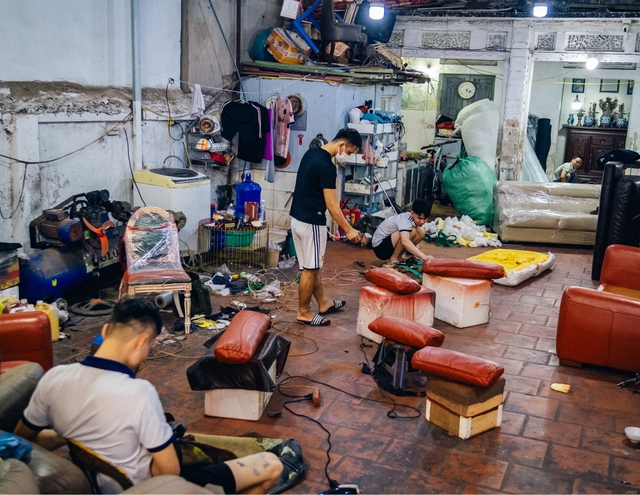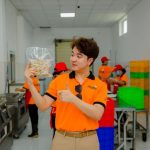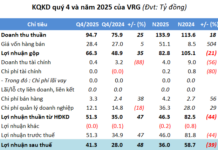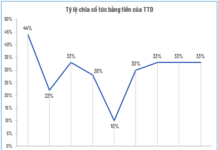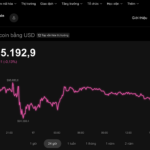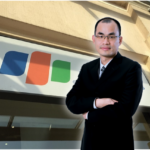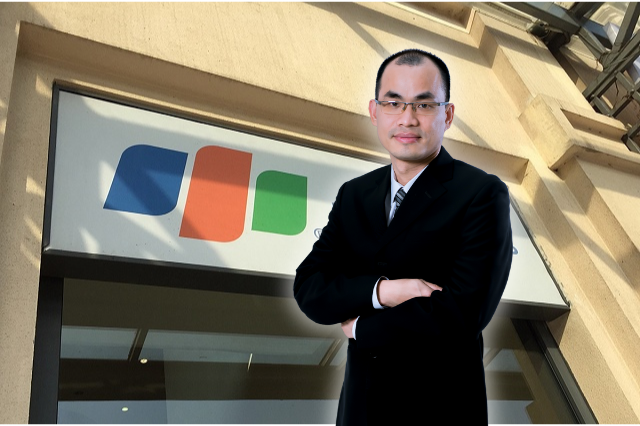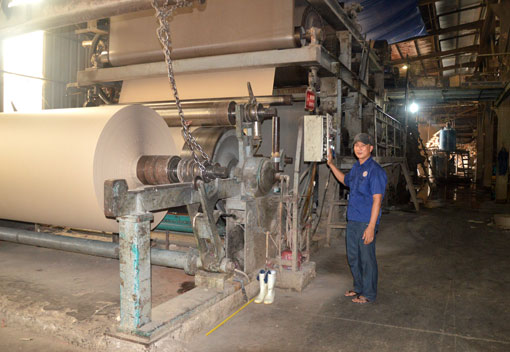Nguyen Van Phuc, affectionately known as Phuc Buia, is the owner of the Leather Hospital, a leading provider of warranty and care services for products manufactured by prominent brands, distributors, and businesses dealing in leather goods. With four showrooms in Hanoi, Phuc has established himself as an expert in his field.
His appearance on the Vietnamese version of Shark Tank, a business reality show, was a testament to his success. Nguyen Van Phuc impressed the panel of investors, known as Sharks, and secured an investment of 500 million VND for 8% of his company’s shares. The Sharks were so convinced by his pitch that none of them felt the need to negotiate, a rare occurrence on the show. However, behind this triumph lies a story of resilience and inspiration.
Born in 1990 in Ha Tay, Phuc was the youngest of six children, with five older sisters. His father, a war veteran, and his mother, who supported the family by tending to their small rice fields, faced financial challenges. After his father’s passing in 2001, the economic burden fell heavily on his mother’s shoulders.
To make ends meet, Phuc’s sisters had to drop out of school, and he was determined to contribute financially. He decided to take up shoe shining, working around his high school schedule. Some days, he would attend school in the morning and shine shoes in the afternoon, and on other days, he would get up at 3 am to shine shoes before his afternoon classes. Despite the challenges, Phuc remained focused on his dream of becoming a university student.
He moved to Hanoi to prepare for the entrance exams, studying tirelessly day and night to catch up with his peers. Even during exam preparation, he continued to shine shoes during the day and studied late into the night with the help of a flashlight in the hallway of his dorm. His dedication paid off, and he secured a spot at the Academy of Journalism and Propaganda.
During his university years, Phuc had the opportunity to work with a television station. He would spend the week working at the station and return to his shoe-shining business on the weekends.
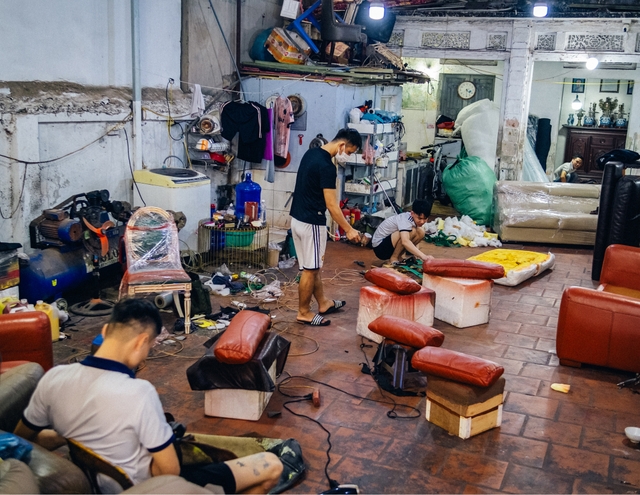
A turning point came in 2015 when Phuc, through his shoe-shining business, started encountering a significant number of luxury leather goods. This exposure sparked his interest in learning about leather care and maintenance processes. After conducting thorough research and experimentation, he decided to venture into the leather care business, aiming to offer a higher level of service than what was currently available.
In 2018, recognizing the growing market for luxury leather goods in Hanoi, Phuc, along with a fellow shoe shiner named Chien, took a bold step. They borrowed 100 million VND and established the Leather Hospital, a specialized leather care service. Despite initial challenges, their business gained traction, attracting customers with their superior craftsmanship. They also provided employment opportunities for underprivileged individuals and homeless people, offering them a chance to rebuild their lives.
The Leather Hospital’s staff comprises individuals with unique and challenging backgrounds, including those who had to leave their homes in search of a livelihood and victims of human trafficking. These employees are trained in leather restoration, luxury goods repair, and sofa upholstery. Over the years, nearly 50 individuals have overcome their personal struggles and found stable employment through the Leather Hospital, earning monthly salaries ranging from 9 to 15 million VND.
Currently, the Leather Hospital primarily focuses on restoring and repairing leather sofas. On average, they refurbish 20-30 sofa sets per month, generating hundreds of millions of VND in revenue.

Nguyen Van Phuc on Shark Tank
Nguyen Van Phuc’s appearance on Shark Tank had a clear objective: to secure an investment of 500 million VND for 8% of his company’s shares. With this funding, he aimed to expand the Leather Hospital to Ho Chi Minh City, enabling him to help more underprivileged individuals, especially in the Central Highlands, where many young people are vulnerable to exploitation.
The CEO of the Leather Hospital shared that employees undergo a comprehensive training program lasting 6-9 months. After gaining proficiency, they can receive additional support in the form of capital and technical expertise to start their own businesses. However, they are expected to continue assisting underprivileged individuals, fostering a community of support.
Shark Pham Thanh Hung, Chairman of Columbus Startup Venture Capital Partners, whose fund allocates a portion for socially impactful startups, was impressed by Phuc’s business and social mission. He agreed to the proposed terms without negotiation and without expecting any dividends. However, he requested oversight to ensure the effective use of the investment.
Shark Nguyen Phi Van also accepted the proposed terms and offered guidance on two business models suitable for the Leather Hospital: micro-franchising for social organizations and job franchising for employees. She suggested that the company should operate as a social enterprise rather than a commercial one, and she, too, waived any profit expectations.
Shark Nguyen Van Thai made a similar investment offer, hoping for a three-year payback period.
Shark Bui Quang Minh fully agreed with the proposed terms and surprised Phuc by offering an additional 500 million VND through a golden ticket. Phuc accepted the golden ticket and shook hands with Shark Minh.
However, Shark Hung believed that kindness should not be monopolized and proposed that all four Sharks invest together.
In the end, Nguyen Van Phuc accepted the collective investment offer from the four Sharks, receiving 500 million VND for 8% of his company’s shares, just as he had initially proposed.
Startup selling phone cases at 500,000 VND/piece showcases 6-fold revenue increase after appearing on Shark Tank, TikTok invites collaboration, guarantees no “shark tank effect”
Shark Binh, one of the 3 “sharks” collaborating with startup Slimcase, has had painful experiences with being “ghosted”. According to him, after achieving the goal of boosting sales, some startups will delay the evaluation process to make investors give up on the deal.
The ‘Secret’ to Vietnam’s Largest Bread Chain: From Street Stall to 1,000 Stores, Starting with Just 7.5 Million VND
With humble beginnings and a starting capital of just over $100, Banh mi Ma Hai has come a long way in the past decade. Today, this delicious deli boasts over 1,000 partners in its franchise model and a distribution network spanning the length and breadth of Vietnam. It’s an impressive achievement and a testament to the hard work and dedication of those involved.

